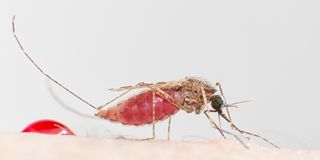Tanzania urged to prioritise malaria prevention and control

What you need to know:
- China's successful eradication of malaria serves as an inspiration for Tanzania. The country's use of Artemisinin-based Combination Therapies (ACTs) has been instrumental in controlling the disease. Tanzania can learn from China's experience and adopt similar strategies to achieve its malaria elimination goals.
Dar es Salaam. Many African countries, including Tanzania, continue to grapple with a significant number of malaria cases. This persistent challenge has prompted health stakeholders to call for urgent and coordinated efforts to eradicate the disease and protect communities from its devastating impact.
"In Tanzania, there are steps we need to take to completely eradicate malaria. This includes addressing the root cause of malaria, known as source control,” a health specialist for Saifee Hospital, said Dr Kiungu Kiungu.
He said there must be sufficient community sensitisation because, although efforts to combat malaria have been ongoing for a long time, the disease still persists in Tanzania.
He said yesterday at the ongoing series of lectures about Traditional Chinese Medicine, which is conducted annually and focused on artemisinin discovered by Chinese scientists from the plant of Artemisia Annua L. in the treatment of malaria inspired by an ancient Chinese medicinal book of Traditional Medicine.
Tanzania alone accounted for 4 percent of all malaria deaths.
The disease continues to pose a major burden in the Northwest and Southeastern regions of the country. The prevalence rate varies geographically, with the highest rate at 23 percent and the lowest at one percent.
This implies that sensitisation efforts are not being adequately carried out in both urban and rural areas. For instance, stagnant water remains a common issue. Therefore, we need to make significant efforts to educate Tanzanians. Even if we distribute medication, without addressing the root causes or sources of malaria, it will all be in vain.
According to him, China used to be a malaria-endemic country, with malaria cases up to 30 million before the 1970s, but in 2020, China completed its goal of eradicating malaria and was certified as a malaria-free country by the World Health Organization. China's ability to achieve zero malaria cases was primarily due to the application of artemisinin and the innovative experiences they developed and summarised during their long-term fight against malaria.
Saifee's hospital nurse, Elizabeth Zephania, said looking at malaria, it causes many deaths here in Tanzania; that is why there is a need to continue with numerous malaria campaigns.
“I have been attending China’s sessions for Traditional Chinese Medicine for a year. I have gained a better understanding of traditional medicines. I believe that traditional drugs like artemisinin can help Tanzania achieve its vision of becoming a malaria-free country.
She said, “Eradicating malaria through prevention efforts with a focus on mass drug administration has shown success in some countries. For instance, the country of Comoros successfully controlled malaria through the implementation of mass drug administration programmes by using artemisinin-based combination therapies for over ten years.”



